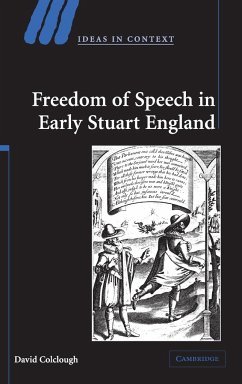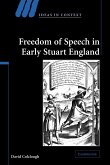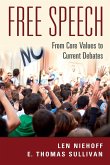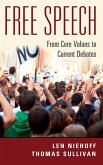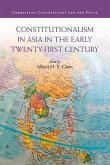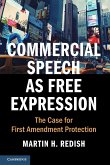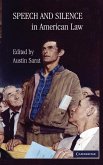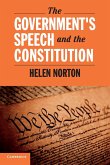Short description/annotation
Describing a central episode in the history of free speech.
Main description
This book discusses a central chapter in the history of free speech in the western world. The nature and limits of freedom of speech prompted sophisticated debate in a wide range of areas in the early seventeenth century; it was one of the 'liberties of the subject' fought for by individuals and groups across the political landscape. David Colclough argues that freedom of speech was considered to be a significant civic virtue during this period. Discussions of free speech raised serious questions about what it meant to live in a free state, and how far England was from being such a state. Examining a wide range of sources, from rhetorical handbooks to Parliamentary speeches and manuscript miscellanies, Dr Colclough demonstrates how freedom of speech was conceived positively in the period c. 1603-1628, rather than being defined in opposition to acts of censorship.
Table of contents:
Acknowledgements; List of abbreviations; Introduction; 1. Parrhesia, or licentiousness baptised freedom: the rhetoric of free speech; 2. Freedom of speech and religion; 3. Freedom of speech in early Stuart Parliaments; 4. 'A very paschall fit for Rome': freedom of speech and manuscript miscellanies; Epilogue; Bibliography.
Hinweis: Dieser Artikel kann nur an eine deutsche Lieferadresse ausgeliefert werden.
Describing a central episode in the history of free speech.
Main description
This book discusses a central chapter in the history of free speech in the western world. The nature and limits of freedom of speech prompted sophisticated debate in a wide range of areas in the early seventeenth century; it was one of the 'liberties of the subject' fought for by individuals and groups across the political landscape. David Colclough argues that freedom of speech was considered to be a significant civic virtue during this period. Discussions of free speech raised serious questions about what it meant to live in a free state, and how far England was from being such a state. Examining a wide range of sources, from rhetorical handbooks to Parliamentary speeches and manuscript miscellanies, Dr Colclough demonstrates how freedom of speech was conceived positively in the period c. 1603-1628, rather than being defined in opposition to acts of censorship.
Table of contents:
Acknowledgements; List of abbreviations; Introduction; 1. Parrhesia, or licentiousness baptised freedom: the rhetoric of free speech; 2. Freedom of speech and religion; 3. Freedom of speech in early Stuart Parliaments; 4. 'A very paschall fit for Rome': freedom of speech and manuscript miscellanies; Epilogue; Bibliography.
Hinweis: Dieser Artikel kann nur an eine deutsche Lieferadresse ausgeliefert werden.

